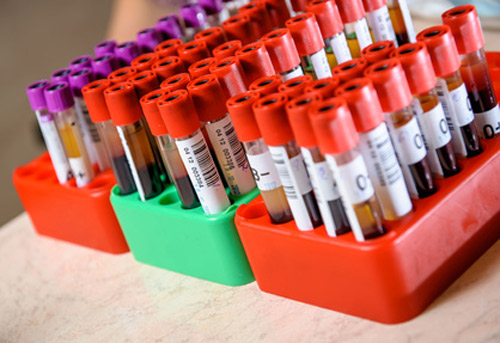
In response to restricted access to critical diagnostics for cancer patients resulting from the COVID-19 pandemic, a Canadian consortium led by Canexia Health (formerly named Contextual Genomics) has launched Project ACTT (Access to Cancer Testing & Treatment). The CAD $2,590,000 initiative will leverage liquid biopsies for cancer testing in an effort to eliminate the need for travel to hospitals for surgical tissue biopsies.
By eliminating the need for tissue biopsies collected in the hospital, Project ACTT will limit potential patient exposure to COVID-19 while increasing access to needed testing for patients with recurrent or metastatic lung, breast and colon cancers. It is estimated that cancer patients have a two-fold risk of contracting COVID-19 compared with the general population and three-fold risk of dying.
Since early March, COVID-19 has delayed or postponed at least 100,000 surgeries in Canada, including cancer tissue biopsies.
“Tackling the backlog of medical procedures and treatments due to COVID-19 is a challenge across Canada. The Canexia Health project team has an innovative and pragmatic solution to protecting cancer patients while providing much-needed treatment quickly and effectively,” said Bill Tam, COO of the Digital Technology Supercluster in a press release.
In addition to Canexia Health, the consortium includes AstraZeneca Canada, Queen’s University, the Eastern Ontario Regional Laboratory Association, Genolife, emtelligent, Novateur, Semaphore Solutions, Xtract AI, and Illumina.
The digital liquid biopsy that will be used in the project will employ software leveragiing machine learning to identify circulating tumour DNA (ctDNA) in plasma to match patients with targeted treatments.
Access to the testing will be supported by Queen’s University, EORLA, Genolife, and LifeLabs in the provinces of British Columbia, Ontario, Quebec, and Saskatchewan, initially with the intention of bringing the project to all provinces in the country. Canexia Health and AstraZeneca Canada will support testing and oncologist education.
Canexia will leverage emtelligent’s natural language processing (NLP) technology to broaden the population of cancer patients who could benefit to those with all solid tumor types, while Semaphore Solutions will provide laboratory process management services and remote access to test results. Xtract AI will develop, train, and deploy NLP models to assist in the management, understanding, and integration of semi-structured information from a mutation and cancer-type database, while Illumina will provide the sequencing platform for the tests.
“The precision oncology solution offered and further developed with our project partners will both increase patient safety and remove geographic barriers that can impede cancer care,” said Michael Ball, CEO of Canexia. “We are fortunate to have access to this cross-disciplinary group of project partners who, together, will bring these goals to fruition with the support of the Digital Technology Supercluster.”










